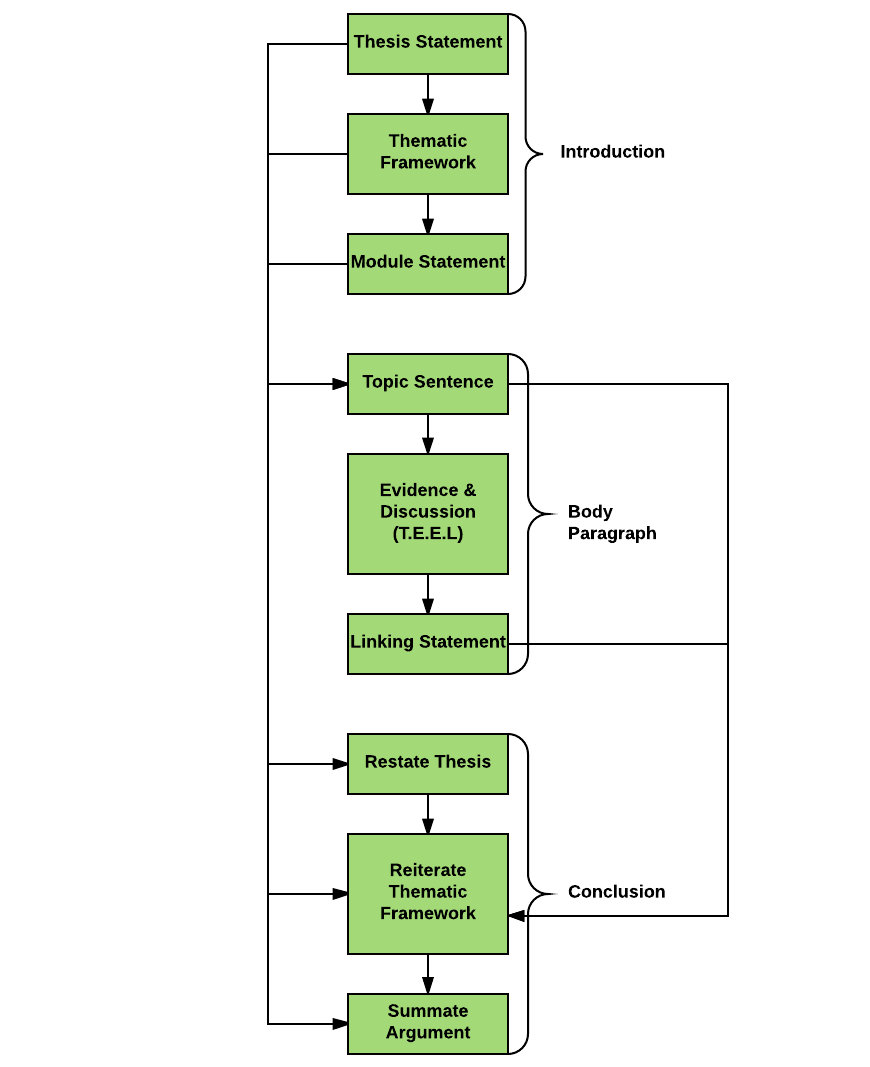
The structure of an essay is divided into an introduction that presents your topic and thesis statement, a body containing your in-depth analysis and arguments, and a conclusion wrapping up your ideas Essay Structure. Writing an academic essay means fashioning a coherent set of ideas into an argument. Because essays are essentially linear—they offer one idea at a time—they must present their ideas in the order that makes most sense to a reader. Successfully structuring an essay means attending to a reader's logic · How to structure an essay. Where the essay starts. When you are writing an essay, every sentence and every paragraph is important. But there is something extra important about The body of your essay. The end of your essay. But where do I start??? Estimated Reading Time: 8 mins
What is the structure of an essay?
Or, probably more realistically, two, three, or four essays. One of the most important skills to develop is writing strong essays efficiently. And the foundation of that skill is knowing how to structure an essay. Make your essays shine. Polish your writing with Structures of an essay Write with Grammarly.
This structure has stood the structures of an essay of time for one simple reason: It works. It all starts here. This is also where you state your thesis.
An easy way to write your thesis statement is to think of it as a summary of your essay. When you proofread your finished essay, make sure your thesis is clearly stated in your introduction paragraph. Each body paragraph should focus on one supporting argument for your thesis by discussing related data, content, or events.
If the detail supports your thesis, it should be in your essay. Your thesis statement is the core of your basic essay structure, so everything else in the essay needs to relate to it in some way. Because your reader is now familiar with your thesis, the summary in your conclusion paragraph can be more direct and conclusive than the one in your intro paragraph.
In high school, you were probably taught to write five-paragraph essays. This is a solid essay structure to work with, but in college, you generally have more flexibility with assignment lengths and formats. Now, consider five the minimum—not the standard—number of paragraphs you should include in your essays. Structures of an essay are a few different ways to present information in an essay. Often, your assignment will tell you what kind of essay to write, such structures of an essay a chronological, compare and contrast, or problems-methods-solution essay.
A chronological essay guides the reader through a series of events. With this kind of essay, you first introduce your topic and summarize the series of events in your introduction paragraph. Then, each body paragraph takes the reader through a key stage in that series, which might be a decisive battle in history, a pivotal scene in a novel, or a critical stage in a judicial process. In your conclusion, you present the end result of the series you discussed, underscoring your thesis with this result.
There are a few different ways to structure a compare-and-contrast essay. Another method is to only compare, where each of your body paragraphs discusses a similarity between the topics at hand. Or you can go the only-contrast route, where your body paragraphs explore the differences, structures of an essay. Whichever you decide on, make sure each paragraph is focused on one topic sentence.
Every new comparison or contrast should occupy its own paragraph. With this kind of essay, begin by introducing the problem at hand. In the subsequent body paragraphs, cover possible methods for resolving the problem, discussing how each is suited to fixing the problem, and potential challenges that can arise with each. You can certainly state which you think is the best choice—that could even be your thesis statement.
In your conclusion paragraph, summarize the problem again and the structures of an essay resolution, endorsing your method of choice if you have one. In this kind of essay, you can also include a call to action in your final paragraph, structures of an essay. com today to add Grammarly browser extension for free, structures of an essay. For a lot of students, getting started is the hardest part of writing an essay. Knowing how to structure an essay can get you past this seemingly insurmountable first step because it gives you a clear skeleton upon which to flesh out your thoughts.
Real-time suggestions, wherever you write, structures of an essay. Make Your Essay Structure Rock-Solid with These Tips Lindsay Kramer. Students How to Write Masterful Topic Sentences for Essays Students 7 of the Best Life Lessons from Graduation Speeches Students How to Write an Abstract for Your Paper Students What Is Academic Writing?
Students How to Juggle All Those Finals Papers at Once Students A Pandemic Thank You Letter to Teachers. Writing, grammar, and communication tips for your inbox.
How To Write An Essay: Structure
, time: 5:43How to Structure an Essay | Tips & Templates

· How to structure an essay. Where the essay starts. When you are writing an essay, every sentence and every paragraph is important. But there is something extra important about The body of your essay. The end of your essay. But where do I start??? Estimated Reading Time: 8 mins The structure of an essay is divided into an introduction that presents your topic and thesis statement, a body containing your in-depth analysis and arguments, and a conclusion wrapping up your ideas Essay Structure. Writing an academic essay means fashioning a coherent set of ideas into an argument. Because essays are essentially linear—they offer one idea at a time—they must present their ideas in the order that makes most sense to a reader. Successfully structuring an essay means attending to a reader's logic
No comments:
Post a Comment